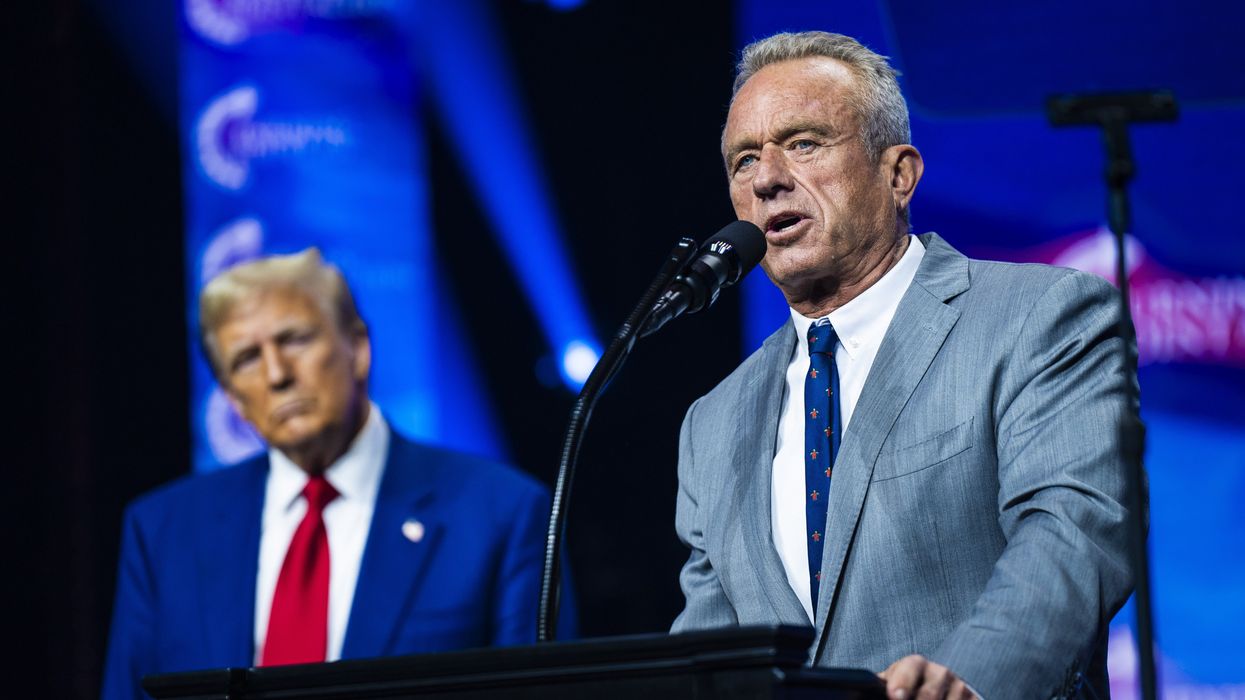The American voters bought a ticket to a second Trump administration, but the ride that will be the Department of Health and Human Services might just be a bit crazy, if not downright dangerous.
While President-elect Donald Trump did not seem to follow Project 2025’s recommendations for HHS, the American people should be no less afraid of how the second Trump administration might affect their health outcomes.
Back in August, I concluded that if the Trump administration followed the Heritage Foundation’s recommendations, the United States would likely have less healthy outcomes. I wrote: “Project 2025’s chapter on the Department of Health and Human Services does little to address the health challenges to Americans nor does it advance our collective well-being.”
There is a wide chasm between Project 2025’s vision for HHS and Trump’s nominee for secretary of that department. My prediction after reading Project 2025 last year does not even come close to the future that Americans may experience if Robert F. Kennedy Jr. is confirmed by the Senate.
The Heritage Foundation, which assembled Project 2025, is a conservative think tank and its proposals were predictably right of center. It had five goals for the next “conservative” president when it comes to health care leadership: Protecting Life, Conscience, and Bodily Integrity; Empowering Patient Choices and Provider Autonomy; Promoting Stable and Flourishing Married Families; Preparing for the Next Health Emergency; and Instituting Greater Transparency, Accountability, and Oversight.
Almost a quarter of Project 2025's 54-page chapter on HHS prioritized an anti-abortion agenda as well as recommending traditional family values. Kennedy, Trump’s pick to head the department, has been married three times and favors abortion rights.
The mission of HHS is “to enhance the health and well-being of all Americans, by providing for effective health and human services and by fostering sound, sustained advances in the sciences underlying medicine, public health, and social services.”
Going by this mission statement alone, Kennedy is wholly unqualified to run the department due to his long history of believing and spewing conspiracy theories when it comes to matters of health.
Here is a list of just a few of the health-related conspiracies that Kennedy has publicly endorsed:
- Kennedy has falsely linked vaccines to autism, saying of vaccines: "This is a Holocaust, what this is doing to our country.”
- He claimed HIV does not cause AIDS.
- He suggested that the Covid-19 pandemic may have been a “plandemic” and that “Covid-19 is targeted to attack Caucasians and Black people. The people who are most immune are Ashkenazi Jews and Chinese.”
- Kennedy accused the government of using 5G networks to “control our behavior” and he claims that WiFi is making us unhealthy.
- He has expressed the belief in the existence of “chemtrails,” insisting that the water vapor trails that some planes leave in the sky are geoengineering projects, run by the Department of Defense or our intelligence agencies.
- He said the Food and Drug Administration is waging a “war on public health.”
While Kennedy is committed to combating the causes of chronic disease, childhood illnesses and obesity, which should be lauded, his “Make America Healthy Again” methods are questionable at best in their scientific foundations — and potentially dangerous to the health and safety of the American public.
One example is Kennedy's call to remove fluoride from tap water and increase access to raw milk. There are reasons that we added fluoride to our water in 1950 and why milk is pasteurized — reasons Kennedy doesn’t take into account.
Neil Maniar, director of Northeastern University’s Master of Public Health Program and professor of practice in public health, says fluoridation of water was “one of the greatest public health achievements of the 20th century.” Maniar says the introduction of fluoride into drinking water has reduced cavities by 25 percent.
The American Dental Association, the American Academy of Pediatrics and the Centers for Disease Control and Prevention continue to support water fluoridation. The AAP’s Campaign for Dental Health refutes Kennedy’s accusation that fluoride causes cancer and kidney disease, stating “there is no scientifically valid evidence” to support Kennedy’s claims that fluoride causes cancer and kidney disease.
Raw milk is unsafe to consume as it may contain harmful and dangerous bacteria, such as Campylobacter, salmonella, E. coli and listeria. The FDA and CDC have strongly advised against consuming it.
Of course, the president-elect has the full authority to nominate anyone he wishes to Cabinet posts but ultimately it will be up to the Senate to determine if Kennedy is confirmed as the HHS secretary.
The irony is that Trump has rejected most of Project 2025’s HHS proposals with his pick of Kennedy, but the choice of Kennedy as the top protector of Americans' health might be even worse.
Read the complete collection of Fulcrum articles on Project 2025.
Schmidt, a columnist and editorial board member with the St. Louis Post-Dispatch, holds a degree in nursing from the University of North Carolina at Greensboro.




















Trump & Hegseth gave Mark Kelly a huge 2028 gift